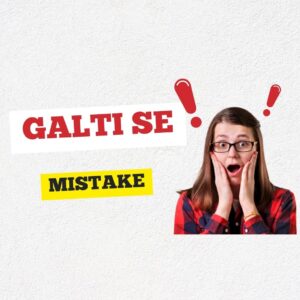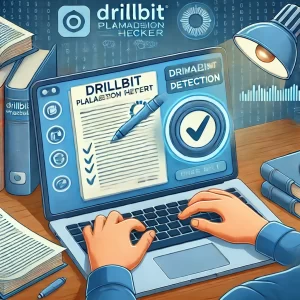
Common Pitfalls in Academic Writing: Tips to Maintain Integrity
Academic writing is an essential part of higher education and research, necessitating that students and researchers convey ideas clearly, rigorously, and ethically. The path to strong academic writing can present various challenges, and several common missteps may compromise the quality of the work and the writer’s credibility. To uphold academic integrity and create credible, impactful work, it is important to identify and steer clear of these pitfalls. Below are several common issues along with suggestions for addressing them.
Unintentional Plagiarism
Plagiarism represents a significant violation of academic integrity, and it can be surprisingly simple to commit unintentionally. Unintentional plagiarism frequently happens when writers do not adequately cite their sources, closely paraphrase the original text, or mistakenly believe that certain information is widely known.
Tip: To prevent accidental plagiarism, cultivate effective citation practices. Maintain detailed notes on all sources and ideas utilized, and consistently cite every source you reference, even in preliminary drafts. Get to know different citation styles such as APA, MLA, and Chicago, and utilize citation management tools like Zotero, Mendeley, or EndNote to keep everything organized. Always check your work for accurate attribution, particularly when paraphrasing.
Improper Paraphrasing
Paraphrasing goes beyond merely swapping out a few words; it requires rephrasing the source material in your own language while maintaining the original intent. Paraphrasing that closely resembles the original phrases and sentence structures is regarded as plagiarism.
Tip: Strive to fully grasp the material before you begin paraphrasing. Once you have read a passage, pause to consider its significance, and then articulate the concepts in your own words without referring back to the original text. Ensure to include a citation to the source, as the concept is derived from another work.
Over-Reliance on Direct Quotations
It is generally recommended to use direct quotes sparingly in academic writing, as excessive use can diminish the originality of the work. Although quotes can effectively support arguments, excessive reliance on them may cause the paper to appear more as a compilation of others’ ideas instead of an original analysis.
Tip: Utilize direct quotations only when the precise wording is essential, such as in defining terms, interpreting key statements, or analyzing specific language. Alternatively, focus on rephrasing or condensing the information to demonstrate your comprehension of the subject.
Data Misrepresentation
Misrepresenting data, whether done intentionally or not, constitutes a breach of academic integrity. Common errors involve overstating results, misunderstanding statistical significance, or choosing data selectively to support a preferred conclusion. Misrepresentation can result in incorrect conclusions and undermine the credibility of your work.
Tip: Share data in an unbiased and clear manner. Verify all numbers, acknowledge the limitations of your research, and refrain from selectively presenting results. Utilize visual aids, such as graphs and tables, when appropriate, to assist readers in accurately interpreting the data, and offer explanations for any anomalies or deviations.
Self-Plagiarism
Reusing one’s own work without proper disclosure, referred to as self-plagiarism, can create a misconception among readers that the content is original and distinct when it is not. This can be especially appealing for students and researchers looking to leverage existing work without having to begin anew.
Tip: When reusing any prior work, even a brief excerpt, make sure to obtain the necessary permissions from professors, editors, or supervisors, as required. If you’re unsure, reference your own work or make it clear that some parts have been published before.
Inconsistent Referencing
Inconsistent referencing may undermine the credibility of an academic paper. This involves utilizing various citation styles in a single paper or leaving out crucial details in references, which complicates the process for readers trying to verify sources. Inconsistent citations may lead to concerns regarding the overall rigor of the paper.
Tip: Select a single citation style and consistently apply it throughout your work. Thoroughly examine every entry in your References or Works Cited section to confirm that it is complete and accurate. Various citation styles necessitate particular information arranged in a specific sequence, so refer to official style guides or utilize citation tools to ensure consistent formatting of entries.
Writing without a Clear Thesis
A clear thesis statement is crucial for directing the organization and emphasis of an academic paper. A paper lacking a clear thesis may lose focus, which can hinder readers’ ability to follow the writer’s argument and diminish the overall effectiveness of the work.
Tip: Take the time to create a clear thesis that articulates the purpose and argument of your paper. Consider the question, “What is the main point or argument I want to convey in this paper?” Refer to this thesis during the writing process to ensure your content remains aligned and cohesive.
Neglecting to Proofread
Academic writing demands accuracy, as minor errors in grammar, spelling, or punctuation can divert readers’ attention and undermine the credibility of your work. Failing to proofread raises the likelihood of unintentional plagiarism, citation mistakes, and formatting inconsistencies.
Tip: Allocate time to thoroughly review your work. Think about reading it out loud or having a colleague take a look at it. Tools such as Grammarly or language-editing software can assist in identifying common errors, but a human review is crucial for detecting issues that software may overlook.
Failing to Address Counterarguments
A frequent mistake in argumentative writing is overlooking counterarguments. Neglecting to consider alternative perspectives or potential criticisms can render your argument appear biased or lacking depth.
Tip: Consider potential counterarguments and respond to them thoughtfully in your work. This showcases analytical skills, enhances your argument, and indicates that you’ve taken various viewpoints into account. Incorporating diverse perspectives enriches the quality and reliability of your paper.
Conclusion
Upholding integrity in academic writing is crucial for establishing credibility, ensuring intellectual honesty, and making valuable contributions to knowledge. By identifying frequent mistakes—like accidental plagiarism, incorrect paraphrasing, and misrepresentation of data—and following established guidelines, writers can create quality, ethical content. Academic writing is a skill developed gradually, and by staying mindful of integrity, writers establish a solid base for their future research and professional activities.
